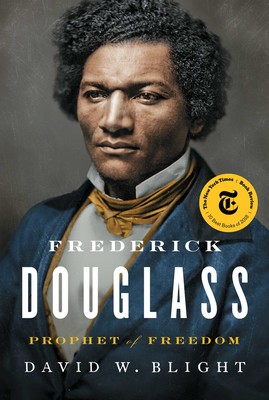This week’s selected media: November 5, 2023: “Frederick Douglass: Prophet of Freedom” and “Climate Change and the Course of Global History”
Why have I not posted about finishing any readings for three weeks? Because the book on Frederick Douglass is 800 pages, or 36 hours by audio. It’s worth it. It’s a masterpiece about a person who would inspire at any time in history, and now more than ever.
This week I finished:

Frederick Douglass: Prophet of Freedom, by David W. Blight: Podcast guest David Blight won the Pulitzer prize for this book. From the Pulitzer Prize page: “The definitive, dramatic biography of the most important African American of the nineteenth century: Frederick Douglass, the escaped slave who became the greatest orator of his day and one of the leading abolitionists and writers of the era.”
The book covers his life comprehensively from his being enslaved, escaping and working with William Lloyd Garrison, breaking out on his own, connecting with Abraham Lincoln, becoming a government functionary, his family life, his feuds, and more.
Blight analyzes and puts Douglass’s life in context without injecting himself too much into it. We learn about the nation, its anti-slavery politics and its love of slavery, its lynching, and its inertia, among more.
Most of all, Douglass comes out as an impassioned, indefatigable, brave, brilliant, eloquent, hurt man with many insecurities.
A great book about a great man.
Climate Change and the Course of Global History: A Rough Journey, by John L. Brooke: Brooke describes his book as about “history on a grand scale . . . what is coming to be known variously as ‘big history,’ ‘deep history,’ and ‘evolutionary history’.” I’m reading it for research for my book, specifically on what I see as the dawn of unsustainability and how material conditions led to our culture today. Like a mercenary, I’ve only read roughly the first third. I’m not sure if I’ll read the whole thing.
I found this book informative and engaging. It clarifies how much of our history is us responding to changing environmental cues, which doesn’t make us slaves to the environment. We do the best we can. Our ancestors did the best they could. Knowing the situation reveals why we are doing and they did what they did.
If you want to understand human history on a scale beyond centuries, you have to include environmental factors. This book explains them.
I’ll invite Brooke to the podcast. David has been on twice, but I’ll invite him again to talk about Douglass.
Read my weekly newsletter

On initiative, leadership, the environment, and burpees